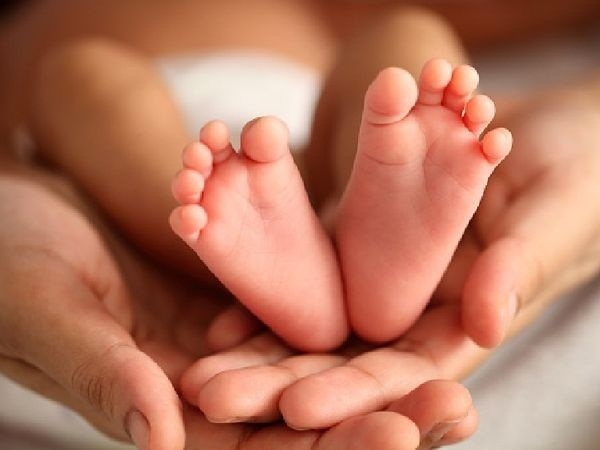Cooling therapy breathes life into newborn 11 minutes after birth
| Date :12-May-2021 |

BENGAULRU :
AS SECOND COVID wave is sweeping across Karnataka, here’s a heart-touching story of the baby soldier, who took his first breath, a whopping 11 minutes after he was born. Bengaluru North’s Rainbow Children Hospital revived the baby that was born floppy, which in other words means he couldn’t breathe at birth, couldn’t cry, didn’t have a heart beat rate and no sign of breathing movement at all. The hospital’s consultant, Dr Pradeep Kumar disclosed that the baby was born normal but with a very poor apgar score.
“After taking note of this condition, we immediately used every medical intervention technique including newborn resuscitation technique after which the baby’s heartbeat came up in one minute but it took 11 minutes for this baby to take its first breath,” he explained. According to him, the apgar score is a test given to newborns soon after birth. This test checks a baby’s heart rate, muscle tone, and other signs to see if extra medical care or emergency care is needed. The test is usually given twice: once at one minute after birth, and again at five minutes after birth.
He added that when this newborn was born with challenging conditions, a team of doctors in Rainbow Hospitals diagnosed the baby with Stage-2 Hypoxic Ischemic Encephalopathy. So to cure him, these experts used ‘Therapeutic Hypothermia method’, which is also called ‘whole body cooling method’. Dr Kumar said that this was a very rare scenario and is observed only in two per cent of live births but contributes for 20 per cent of neonatal deaths.
“Prenatal Asphyxia happens because of decreased blood flow from mother to placenta and to baby, impaired oxygenation to the baby, reduced gas exchange across placenta and increased foetal oxygen requirement,” he claimed. Another team member who handled this case, Neonatology and Paediatrics, Dr Sushma Kalyan Achuta said that the baby was cooled for 72 hours and slowly rewarmed over 12 hours. “He was monitored closely for vitals and systemic functions and seizures were treated appropriately with medications.”